I WAS AT LIVENGRIN 1977 AND 1978 AND AM STILL LIVING AN ALCOHOL FREE LIFE. I LOOK BACK AND SEE A LIFETIME OF ENJOYMENT AND A NEW DIRECTION OF MY LIFE. YOU GAVE ME THE KNOWLEDGE TO ENJOY MY LIFE. I FEEL THAT I HAVE BEEN REBORN.
About Livengrin Foundation
This sprawling campus sits on 44 acres and includes three residential homes and multiple facilities. You’ll receive treatment in a peaceful and positive environment, helping you focus on your recovery without distraction.
The residential program is gender specific and utilizes individual and family counseling. Family members are supported alongside their loved one’s treatment and are provided with tools to help their loved one during recovery. You’ll sign up for 12 Step group meetings, which are held onsite. If you’re looking for a spiritual treatment, faith-based counseling is also available.
Outpatient care is also available for individuals including working professionals who need more flexibility in their treatment plan. The Bensalem site is one of five satellite locations that provide outpatient care.
Facility Overview
Latest Reviews
Rehab Score
Gallery
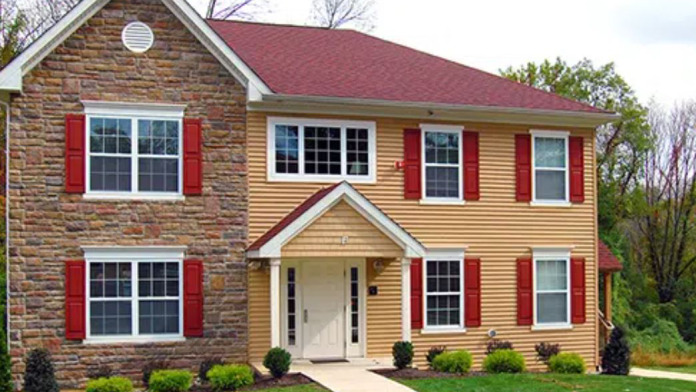
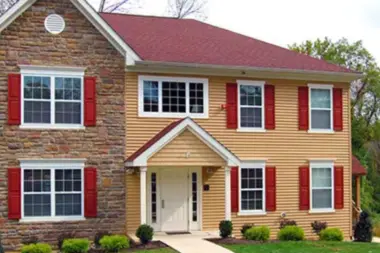
Other Forms of Payment
Private insurance refers to any kind of healthcare coverage that isn't from the state or federal government. This includes individual and family plans offered by an employer or purchased from the Insurance Marketplace. Every plan will have different requirements and out of pocket costs so be sure to get the full details before you start treatment.
Self-pay involves paying for treatment out of your own pocket. You can use savings or credit, get a personal loan, or receive help from family and friends to fund your treatment. If you don't have insurance or your insurance plan doesn't cover a specific program, self-pay can help ensure you still get the care you need.
Financial aid can take many forms. Centers may have grants or scholarships available to clients who meet eligibility requirements. Programs that receive SAMHSA grants may have financial aid available for those who need treatment as well. Grants and scholarships can help you pai for treatment without having to repay.
Military members, veterans, and eligible dependents have access to specific insurance programs that help them get the care they need. TRICARE and VA insurance can help you access low cost or no cost addiction and mental health treatment. Programs that accept military insurance often have targeted treatment focused on the unique challenges military members, veterans, and their families face.
Medicaid is a state based program that helps lower-income individuals and families pay for healthcare. Medicaid covers addiction treatment so those enrolled can use their coverage to pay for rehab. When a program accepts Medicaid the client often pays very little or nothing out of their own pocket.
Addiction Treatments
Levels of Care
Outpatient Services are designed for the patient who does not require a residential rehab program, but still can benefit from a concentrated treatment plan. These programs combine education on mind & body development during recovery, group and individual therapy, and a family education component. A person’s length of stay in Outpatient is based on the individual’s clinical needs. There are day and evening sessions, depending on the location of the Counseling Center.
A temporary separation from family, job and the routine of daily life promotes health and recovery. This can be achieved with a stay for up to four weeks at the quiet campus in Bensalem, just outside Philadelphia in Bucks County, PA. A patient’s day is scheduled with a combination of structured sessions and personal time. There are lectures for the entire community, and small therapy groups, where the sharing of experiences and emotions lets everyone know they’re not alone. There are also focus groups aimed specifically at addressing common obstacles and problems such as trauma, grief and loss, and many others.
Intensive Outpatient Programs (IOP) are for those who want or need a very structured treatment program but who also wish to live at home and continue with certain responsibilities (such as work or school). IOP substance abuse treatment programs vary in duration and intensity, and certain outpatient rehab centers will offer individualized treatment programs.
12-step programs are addiction recovery models based on Alcoholics Anonymous (AA). A number of substance abuse programs (including some drug and alcohol rehab centers) use the 12 steps as a basis for treatment. Beginning steps involve admitting powerlessness over the addiction and creating a spiritual basis for recovery. Middle steps including making direct amends to those who've been hurt by the addiction, and the final step is to assist others in addiction recovery in the same way. 12-Step offshoots including Narcotics Anonymous (NA), Cocaine Anonymous (CA), Dual Recovery Anonymous (DRA), Sex and Love Addicts Anonymous (SLAA) and Gamblers Anonymous (GA).
Because the severity of withdrawal symptoms can fluctuate, constant monitoring under 24-hour clinical care in Pennsylvania is recommended for early recovery. As you undergo detox, medical staff will supervise your health and ensure severe symptoms do not develop or threaten your life. Professional counselors will also be available to treat mental and emotional health needs.
With the help of the nurses and therapists, detox patients are given some new coping tools and ideas that help them manage this important transition that cleanses the body of toxins. Detox patients participate in their own group and individual counseling sessions, dining hours, and other activities. It’s important that a detox patient be engaged with the process they’re going through. Educational groundwork can help patients alleviate their fears, get answers to questions about what they can expect, and learn about their medications. The rehab clinical staff visits detox to talk about the early phases of recovery. Additionally, there are meetings with patients who are close to leaving rehab, who bring their own experience and new perspective to the detox patients.
A partial hospitalization program (PHP) is a short-term form of intensive rehab, usually for those with acute symptoms that are hard to manage but don’t require 24-hour care. PHPs have structured programming (i.e. individual and/or group therapy), and usually meet 3-5 days a week for around 6 hours (i.e. 9am-3m). Some PHPs are residential (patients sleep on site) and some are not, so patients sleep at home. PHPs can last from 1-6 months, and some offer transportation and meals.
Treatments
The goal of treatment for alcoholism is abstinence. Those with poor social support, poor motivation, or psychiatric disorders tend to relapse within a few years of treatment. For these people, success is measured by longer periods of abstinence, reduced use of alcohol, better health, and improved social functioning. Recovery and Maintenance are usually based on 12 step programs and AA meetings.
Drug rehab in Pennsylvania is devoted to the treatment of addiction. Levels of care, treatment methods, and settings differ, but the aim of each program is to end drug dependency and empower participants to achieve long-term recovery.
Their clinical staff is experienced in dealing with the ways in which mental health disorders can be aggravated, or hidden, by substance abuse. Each patient works with a highly-trained counselor to examine the life-circumstances and history of choices that may be mixing with mental health challenges, and to develop the skills to avoid relapse in a world full of pressures. Those challenged by substance abuse and a co-occurring psychiatric disorder can have their multiple needs addressed. The dual diagnosis program combines the addiction-treatment process that contributes to rehabilitation for dependency with the appropriate therapeutic approaches for mental health.
A combined mental health and substance abuse rehab has the staff and resources available to handle individuals with both mental health and substance abuse issues. It can be challenging to determine where a specific symptom stems from (a mental health issue or an issue related to substance abuse), so mental health and substance abuse professionals are helpful in detangling symptoms and keeping treatment on track.
Opioid rehabs specialize in supporting those recovering from opioid addiction. They treat those suffering from addiction to illegal opioids like heroin, as well as prescription drugs like oxycodone. These centers typically combine both physical as well as mental and emotional support to help stop addiction. Physical support often includes medical detox and subsequent medical support (including medication), and mental support includes in-depth therapy to address the underlying causes of addiction.
Programs
Adult rehab programs include therapies tailored to each client's specific needs, goals, and recovery progress. They are tailored to the specific challenges adult clients may face, including family and work pressures and commitments. From inpatient and residential treatment to various levels of outpatient services, there are many options available. Some facilities also help adults work through co-occurring conditions, like anxiety, that can accompany addiction.
Recovery is most successful when clients feel accepted and validated by their peers and treatment providers. Facilities that offer LGBTQ-inclusive programming are committed to creating a safe space where everyone can grow and recover without fear of judgment or discrimination. They will have dedicated policies in place to create a safe and supportive environment that fosters free expression.
Serving in the military is both mentally and physically challenging, and can result in trauma that persists even after combat ends. Military programs are tailored to the specific and often complex needs of active duty personnel, veterans, and military families. Clients often access these programs through the U.S. Department of Veterans Affairs (VA).
Clinical Services
Cognitive Behavioral Therapy (CBT) is a therapy modality that focuses on the relationship between one's thoughts, feelings, and behaviors. It is used to establish and allow for healthy responses to thoughts and feelings (instead of unhealthy responses, like using drugs or alcohol). CBT has been proven effective for recovering addicts of all kinds, and is used to strengthen a patient's own self-awareness and ability to self-regulate. CBT allows individuals to monitor their own emotional state, become more adept at communicating with others, and manage stress without needing to engage in substance abuse.
Equine therapy, aka equine-assisted therapy (EAT), is a form of experiential therapy that involves interactions and activities with horses. It does not necessarily involve riding horses, but all activities related to horses, such as feeding, grooming, haltering and leading them. A mental health professional frequently oversees the activities (often in conjunction with a horse professional), and helps patients process their thoughts, feelings, and behavior patterns during and/or after the interaction.
In individual therapy, a patient meets one-on-one with a trained psychologist or counselor. Therapy is a pivotal part of effective substance abuse treatment, as it often covers root causes of addiction, including challenges faced by the patient in their social, family, and work/school life.
Group therapy is any therapeutic work that happens in a group (not one-on-one). There are a number of different group therapy modalities, including support groups, experiential therapy, psycho-education, and more. Group therapy involves treatment as well as processing interaction between group members.
Motivational Interviewing (MI) is a clinical approach to helping people with substance abuse issues and other conditions shift behavior in positive ways. It is more goal-oriented than traditional psychotherapy, as MI counselors directly attempt to get clients to consider making behavioral change (rather than wait for them to come to conclusions themselves). Its primary purpose is to resolve ambivalence and help clients become able to make healthy choices freely.
Trauma therapy addresses traumatic incidents from a client's past that are likely affecting their present-day experience. Trauma is often one of the primary triggers and potential causes of addiction, and can stem from child sexual abuse, domestic violence, having a parent with a mental illness, losing one or both parents at a young age, teenage or adult sexual assault, or any number of other factors. The purpose of trauma therapy is to allow a patient to process trauma and move through and past it, with the help of trained and compassionate mental health professionals.
Whether a marriage or other committed relationship, an intimate partnership is one of the most important aspects of a person's life. Drug and alcohol addiction affects both members of a couple in deep and meaningful ways, as does rehab and recovery. Couples therapy and other couples-focused treatment programs are significant parts of exploring triggers of addiction, as well as learning how to build healthy patterns to support ongoing sobriety.
Family program is available on Saturday morning and also on Wednesday evenings. It’s a vitally important tool that helps the family learn and adjust their thinking and feelings, to prepare for what everyone hopes will be a newly-sober life. Loved ones will learn how to take care of themselves, how to stop their own enabling behaviors, and how to help the patient adapt to a life without drugs or alcohol. The family therapist will help clients understand the background of addiction – the genetic, biological, environmental and other aspects of the disease.
Amenities
-
Residential Setting
-
Private Rooms
-
Yoga Studio
-
Private Transportation
-
Gym
Staff & Accreditations
Staff
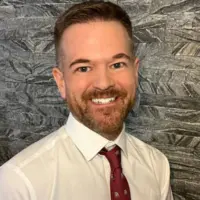
Christopher N. Francis, MA, LPC, NCC, CCS, CCDP
President, CEO & Chief Clinical Officer
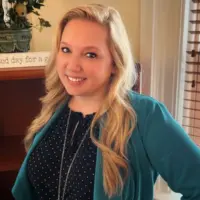
Angela Morley, M.B.A.
Chief Operating Officer & Senior Vice President
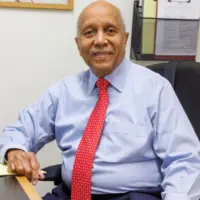
Dr. James W. Cornish, M.D.
Medical Director

Denise Merritt, MS, CAADC, CCS, LPC
Vice President, Clinical Programs
Accreditations

The Joint Commission, formerly known as JCAHO, is a nonprofit organization that accredits rehab organizations and programs. Founded in 1951, the Joint Commision's mission is to improve the quality of patient care and demonstrating the quality of patient care.
Joint Commission Accreditation: Yes
Accreditation Number: 3388

The National Association of Addiction Treatment Providers (NAATP) is a professional association that represents organizations in the field of addiction services. Founded in 1978, NAATP's mission is to advance addiction services and ensure that high-quality addiction treatment is available and accessible.
NAATP Member: Yes
Member ID: 1798

The Substance Abuse and Mental Health Services Administration (SAMHSA) is a branch of the U.S. Department of Health and Human Services. Established in 1992 by congress, SAMHSA's mission is to reduce the impact of substance abuse and mental illness on American's communities.
SAMHSA Listed: Yes

State Licenses are permits issued by government agencies that allow rehab organizations to conduct business legally within a certain geographical area. Typically, the kind of program a rehab facility offers, along with its physical location, determines which licenses are required to operate legally.
State License: Pennsylvania
License Number: 2RDY6601
Contact Information
4833 Hulmeville Road
Bensalem, PA 19020